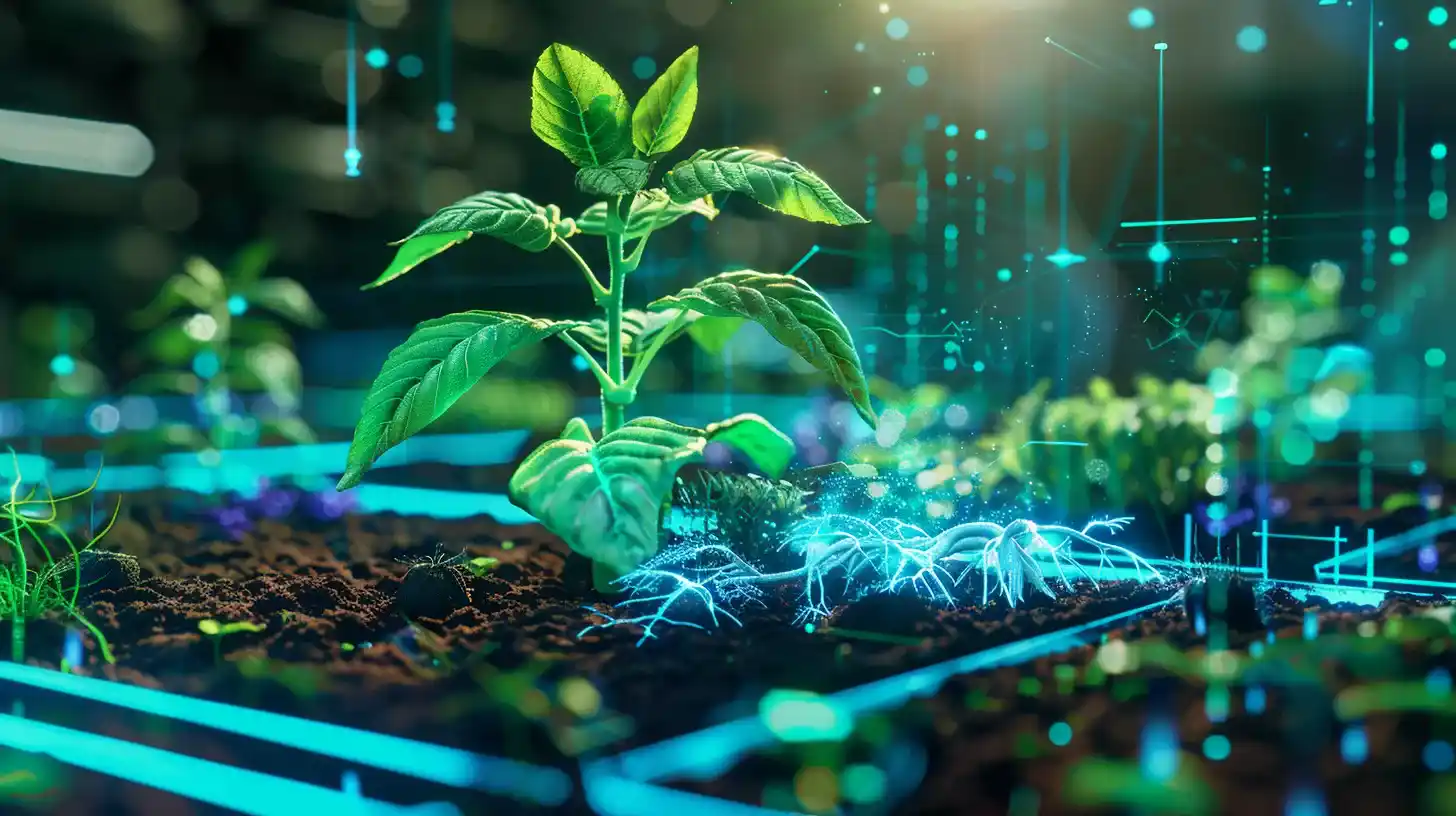Table of Contents
The specter of climate change, marked by escalating extreme weather events and rising temperatures, casts a long shadow over global food security. Scientists are racing to engineer crops resilient to these unprecedented challenges. A pivotal stride towards this goal is the development of a revolutionary AI agriculture breakthrough technology: RhizoNet.
This groundbreaking AI-driven agriculture, conceived by scientists from Lawrence Berkeley National Laboratory, is transforming our understanding of plant growth. By meticulously analyzing root structures, RhizoNet offers unparalleled insights into plant health, biomass, and crop yield potential. The implications for the future of AI agriculture breakthrough are profound.
AI-Powered Root Analysis for Enhanced Crop Growth
RhizoNet’s core strength lies in its ability to process vast image datasets with exceptional precision. Unlike traditional methods often overwhelmed by root system complexity, this AI agriculture breakthrough excels at capturing intricate details. These insights are crucial for developing crops optimized for diverse environmental conditions, bolstering resilience to climate change stressors like drought, floods, and heatwaves.

“RhizoNet is a game-changer in root image analysis, delivering unmatched accuracy in understanding root behavior,” exclaims a researcher involved in the AI agriculture breakthrough project. This level of granularity is instrumental in breeding crops better adapted to the escalating challenges posed by climate change.
Combating Climate Change with AI Agriculture Breakthrough
The imperative to develop climate-resilient crops is magnified by the increasing frequency and intensity of extreme weather events. For instance, the Midwest United States grapples with powerful winds toppling corn crops. To counter this, companies like Bayer are investing in “short corn” varieties that withstand high winds and offer denser planting for increased yields.
Similarly, researchers in England and Vietnam are focused on cultivating salt-tolerant rice to combat seawater intrusion. RhizoNet, as an AI agriculture breakthrough, can expedite these efforts by providing invaluable data on root development in saline conditions, aiding the identification of resilient genotypes.
Beyond crop improvement, the AI agriculture breakthrough promises to optimize farming practices. By analyzing root growth patterns in response to varying soil types, nutrient levels, and water availability, farmers can make data-driven decisions to enhance resource efficiency and minimize environmental impact. Precision agriculture, powered by AI agriculture breakthrough technologies like RhizoNet, can significantly reduce water, fertilizer, and pesticide usage while boosting crop yields.
Related Article: AI in Agriculture: The Amazing Benefits for Farmers and the Environment
Accelerating Agricultural Research with AI Automation
One of the most exciting facets of the AI agriculture breakthrough is its potential to streamline agricultural research. Traditionally, root image analysis is a time-consuming and labor-intensive process. RhizoNet’s automation frees up researchers to concentrate on higher-level analyses and experimentation.
“We’ve made substantial progress in reducing manual work with our image acquisition system, EcoBOT, and now RhizoNet brings us closer to the vision of self-driving labs,” states Peter Andeer, a research scientist involved in the AI agriculture breakthrough project. This automation holds the promise of revolutionizing the pace of agricultural innovation.
A Sustainable Future Fueled by AI Agriculture Breakthrough
The development of RhizoNet signifies a pivotal milestone in the pursuit of sustainable agriculture. By providing unprecedented insights into plant root systems, this AI agriculture breakthrough empowers researchers and farmers to cultivate crops that are both productive and resilient. As the world confronts the dual challenges of climate change and food security, AI-driven solutions like RhizoNet offer a beacon of hope for a greener and more prosperous future.
While challenges persist, the potential benefits of the AI agriculture breakthrough are immense. By harnessing the power of artificial intelligence, we can unlock the secrets of plant growth, refine agricultural practices, and build a more sustainable food system for generations to come.





